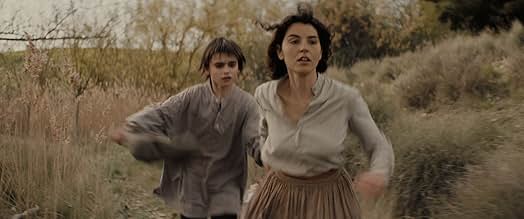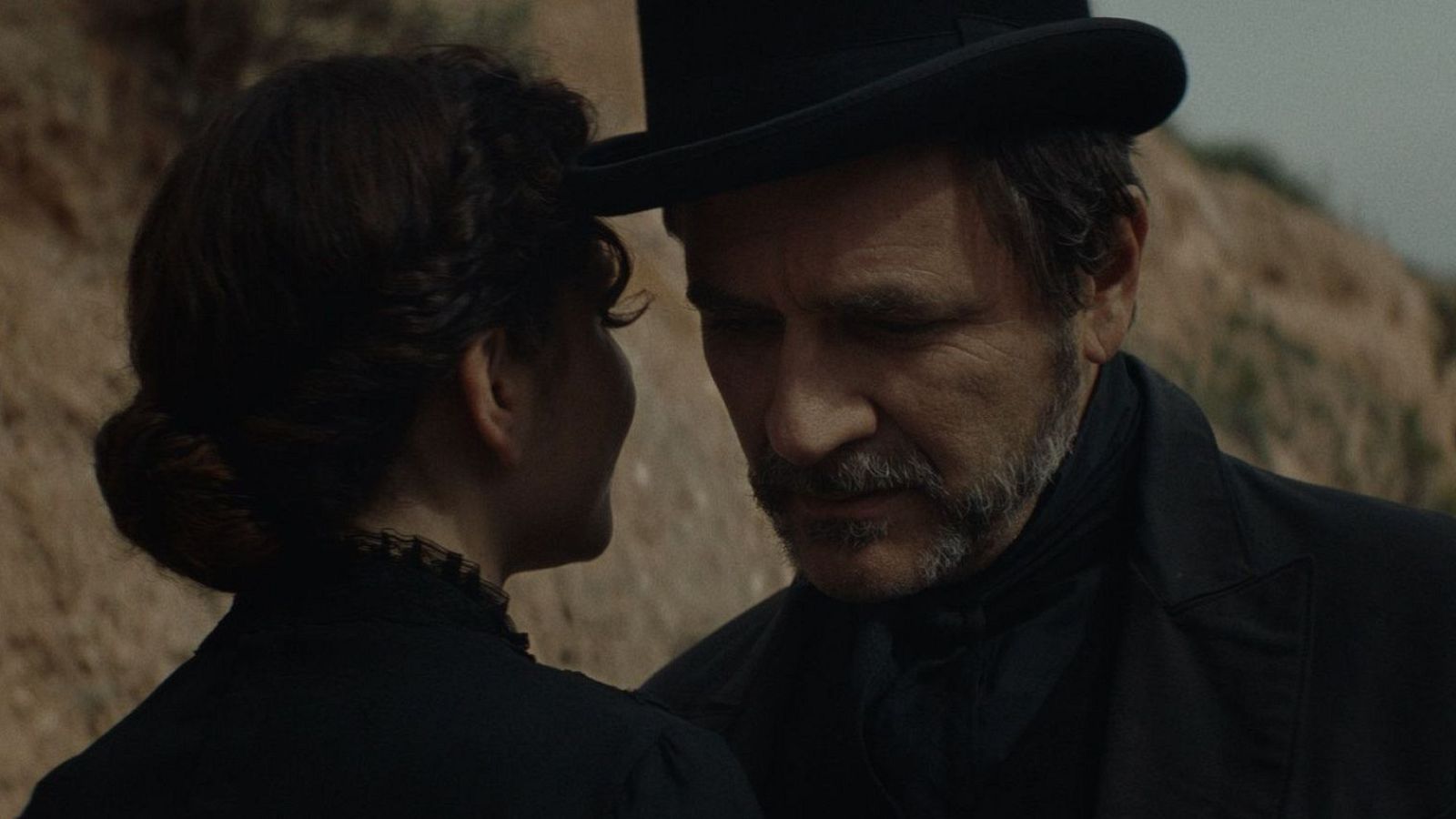Escanyapobres – A Mediterranean Western on Greed, Progress, and Moral Decay
Escanyapobres, directed by Ibai Abad, is a 2024 Catalan-language period drama blending Western aesthetics with historical realism. Loosely adapted from Narcís Oller’s novel L’Escanyapobres, the film explores greed, social change, and power dynamics in rural Catalonia at the end of the 19th century.
Set in 1889 in a remote village called Pratbell, the story introduces Cileta, a young peasant woman living with her father and younger brother on marginal land. They await the arrival of the first train—with hope it brings economic progress—but that optimism fades with the arrival of Oleguer. Known to locals as “the strangler of the poor,” Oleguer is a cold, relentless debt collector who expropriates homes to reclaim payment. As he seizes Cileta’s family farmhouse, their lives are plunged into turmoil.

Cileta, portrayed by Mireia Vilapuig, initially resists Oleguer’s encroachment. Over time, however, she becomes fascinated with the allure of wealth and the intoxicating corruption it brings. At the same time, Àlex Brendemühl plays Oleguer with brooding intensity: a man obsessed with coins—sleeping with them, speaking to them—symbolizing capitalism’s dehumanizing force. Their evolving bond—marked by seduction, resentment, and moral ambiguity—forms the emotional core of the drama.
Shot across various locations in Catalonia and Valencia—such as Calaf, Salàs de Pallars, La Saira, Mutxamel, and Móra la Nova—the film captures beautiful yet austere landscapes that evoke Western classics. Cinematographer María Codina used anamorphic lenses and tungsten lighting to craft a visual palette reminiscent of Sergio Leone or John Ford, softened by Mediterranean light and rustic textures. The resulting imagery frames the story as a uniquely Catalan Western, both grounded and stylized.
The screenplay, co-written by Abad and Elisenda Gorgues, stays faithful to the novel’s naturalist roots while updating its context: capitalism arriving via the railroad, disrupting traditions and exposing raw human ambition. The arrival of the train is more than transit—it's a symbol of industrial progress and systemic upheaval. As the community confronts Oleguer’s morally suspect influence, the film probes timeless questions: Does the promise of prosperity justify moral compromise? How does greed reshape both oppressor and oppressed?
Critics have praised Escanyapobres for its atmospheric tone, period authenticity, and strong performances. The film premiered at the Barcelona Film Festival in April 2024 and won Best Feature at the Catalan Cinema Festival (FIC‑CAT). Its theatrical release followed across select Spanish cinemas in November 2024. While its theatrical reach was limited, it earned recognition for thoughtful direction and artful storytelling.

Though modest in scale, Escanyapobres features a committed ensemble cast—including Quim Àvila and Laura Conejero—who bolster the complex village world. Their performances anchor the story in emotional realism and communal tension, emphasizing both resistance and complicity.
At its core, Escanyapobres is a cinematic meditation on class, power, and transformation. It eschews grand action for psychological intensity and moral pressure. The film’s deliberate pacing, haunting imagery, and thematic resonance give it the feel of a historical morality tale: as the world changes, so too do the individuals caught between tradition and ambition.
Ultimately, Escanyapobres emerges as a striking addition to modern Catalan cinema. Combining aesthetic ambition with literary heritage, it underscores how even remote communities can be reshaped by forces beyond their control—and how the seductive power of money can leave lasting wounds in both land and spirit.



-1751941650-q80.webp)
